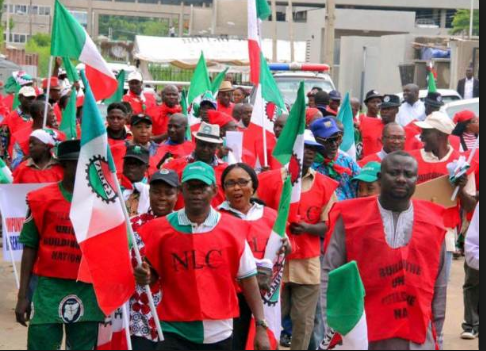- Opposes FG’s plan to sell 40% stake in Discos
Nigeria Labour Congress (NLC) has rejected the upward review of electricity tariffs being charged by distribution companies (Discos) operating in Nigeria.
NLC General Secretary, Mr. Emmanuel Ugboaja, said the new tariff is not acceptable to Nigerian workers.
“We completely disagree with any fresh hike in electricity tariff. We oppose it and the NLC has clearly expressed this position in its communiqué issued at the end of its National Executive Committee meeting held in Kano,” he said,
Ugboaja, who spoke to THISDAY on telephone yesterday, said NLC has also rejected the federal government’s plan to divest from the Discos and the generation companies (Gencos).
“NLC is also opposed to attempts to divest 40 per cent federal government’s holdings in the Discos and Gencos,” he said.
The Nigerian Electricity Regulatory Commission (NERC) had last week approved new electricity tariffs for the distribution companies operating in Nigeria.
The commission said the new tariff which was distinct to each Disco, became effective from July 1, 2019.
Under the new tariffs, residential customers in the networks of Abuja Disco would have to pay between N24.30 and N47.09 per kilowatt hour (kwh) of electricity in 2019, and between N33.34kwh and N63.42kwh in 2021.
Commercial customers under the same network would pay between N37.39kwh and N47.09kwh in 2019 as well as N50.28kwh and N63.42kwh in 2021.
For industrial customers in Abuja, their tariffs in 2019 range from N36.07kwh to N47.09kwh, while that of 2021 would be between N48.49kwh and N63.42kwh.
Under Eko Disco, residential customers would in 2019 be charged between N24 and N29kwh. In 2021, they would be charged N32.42khw and N42.83kwh.
Commercial customers will in 2019 pay between N24 and N36kwh while in 2021, they would be charged between N33.61kwh and N47.70kwh.
For industrial customers in Eko, they will be charged between N24 and N36kwh in 2019, but in 2021, they would have to pay between N36.23 and N48.52kwh.
He said, “Be very, very careful what you believe even when you read such materials in social media or sometimes in newspapers because in this country, we have a most fertile multiplier effect.
“When somebody hears something, he puts it on the Internet, it spreads and an industry begins as people start commenting on things which never existed.
“Sometimes on social media, you’ll even see trending quotes supposedly from me, with my name, my photograph, with statements which represents what those people want to say but lacked the courage to say it.”
Source: THISDAY











